Evolution of Corporate Archiving Technologies
EPA System / News & Eventi

Today’s businesses generate and collect vast amounts of data, which must be managed securely and accessed efficiently. In this guide, we’ll explore the evolution of enterprise storage technologies and the crucial role of storage solutions in effectively managing large volumes of corporate data.
The Need for Storage Solutions in Managing Large Volumes of Corporate Data
With the increasing amount of corporate data generated daily, businesses face a challenge: how to manage, organize, and store all this information efficiently? Storage solutions come into play in this context, providing a way to securely store corporate data and ensure its availability when needed. Storage solutions enable companies to manage large volumes of data, minimizing the risk of losing valuable information.
Managing corporate data has become increasingly complex over the years, but storage solutions offer a way to streamline this process. They allow companies to organize data in a structured manner, enabling quick and reliable access to information. Additionally, storage solutions offer advanced features such as data redundancy and protection against accidental loss or cyberattacks.
Evolution of Storage Technologies: From Traditional Storage to Modern Solutions
Enterprise storage has progressed significantly over the years, moving from traditional storage solutions based on physical media such as hard disks to modern cloud-based storage systems. Traditional storage solutions often required expensive hardware and complex data management operations. However, with the advent of cloud-based storage solutions, companies can now enjoy significant benefits such as scalability, flexibility, and cost reduction.
Cloud-based storage solutions allow companies to store their data remotely, on remote servers managed by storage service providers. This eliminates the need for physical hardware and greatly simplifies data management. Furthermore, cloud-based storage solutions offer advanced features such as data replication across multiple servers to ensure continuous availability and protection against potential losses.
Benefits of Using Storage Solutions in Managing Corporate Data
Using storage solutions in managing corporate data offers numerous benefits. Firstly, it allows companies to reduce costs associated with data management. Cloud-based storage solutions, for example, eliminate the need to invest in expensive hardware and storage infrastructure. Additionally, cloud storage allows companies to pay only for the storage space actually used, further reducing costs.
Furthermore, storage solutions enable companies to enhance the security of corporate data. With advanced features such as data encryption, two-factor authentication, and protection against losses, storage solutions offer a high level of security for corporate data. This helps prevent data leaks or theft, thus protecting the company’s reputation and customer trust.
Finally, storage solutions enable companies to improve operational efficiency. By being able to store and organize large volumes of data in a structured manner, companies can quickly access the information they need and make faster, more informed decisions. Additionally, automating storage operations reduces manual workload and allows staff to focus on more strategic tasks.
Key Features and Functionality of Storage Solutions
Storage solutions offer a range of key features and functionality that make them essential for managing corporate data. Some of the most important features include:
– Scalability: Storage solutions must be able to handle large volumes of data and expand flexibly as business needs grow.
– Data redundancy: To ensure continuous data availability, storage solutions must be able to replicate data across multiple servers or devices.
– Security: Storage solutions must offer advanced security features to protect data from unauthorized access, losses, or cyberattacks.
– Data management: Storage solutions must provide tools to organize and manage data efficiently, enabling quick access and easy retrieval of information.
– Integration: Storage solutions must be able to integrate with other business applications and systems to ensure efficient data management.
Types of Storage Solutions: On-Premises Storage vs. Cloud-Based Storage
There are two main types of storage solutions: on-premises storage and cloud-based storage. Both have their advantages and disadvantages, and the choice depends on the specific needs of the company.
On-premises storage involves the use of physical hardware, such as hard disks or tape storage devices, to store corporate data. This type of solution offers complete control over data and may be suitable for companies with particularly high security requirements or specific compliance needs. However, on-premises storage can be costly in terms of hardware, maintenance, and physical space.
Cloud-based storage, on the other hand, allows companies to store data on remote servers managed by storage service providers. This type of solution offers benefits such as scalability, flexibility, and cost reduction. Companies can pay only for the storage space they actually use and can scale quickly as business needs grow. However, cloud storage may raise concerns about data security and dependence on external service providers.
Best Practices for Implementing Storage Solutions in Enterprise Environments
Effective implementation of storage solutions requires careful planning and strategy. Here are some best practices to consider when implementing storage solutions in enterprise environments:
– Needs analysis: Before choosing a storage solution, it is crucial to understand the specific needs of the company. This includes evaluating data size, security requirements, access needs, and more.
– Solution evaluation: Once the company’s needs are identified, it is important to carefully evaluate the different storage solutions available. This includes comparing costs, features, security, and scalability of the various options.
– Implementation planning: Before implementing a storage solution, it is important to carefully plan the process. This includes defining a roadmap, setting clear goals, and planning the necessary resources.
– Staff training: The success of implementing a storage solution also depends on proper staff training. Ensure that staff are informed about the new storage solutions and know how to use to use them correctly.
– Monitoring and maintenance: Once a storage solution is implemented, it is important to continuously monitor system performance and security. Regularly back up data and apply necessary updates to ensure optimal operation.
Future Trends in Enterprise Storage Technologies
Enterprise storage technologies are continually evolving to meet the growing needs of businesses. Some future trends in storage technologies include:
- Artificial intelligence and machine learning: Integrating artificial intelligence and machine learning into enterprise storage solutions will enable companies to improve data search and organization and further automate storage operations.
- Solid-state storage (SSD): SSD-based storage solutions are becoming increasingly popular due to their speed and reliability. These solutions offer superior performance compared to traditional hard drives, allowing faster access to data.
- Object storage: Object storage is an emerging technology that allows companies to store large amounts of unstructured data in a scalable and cost-effective manner.


